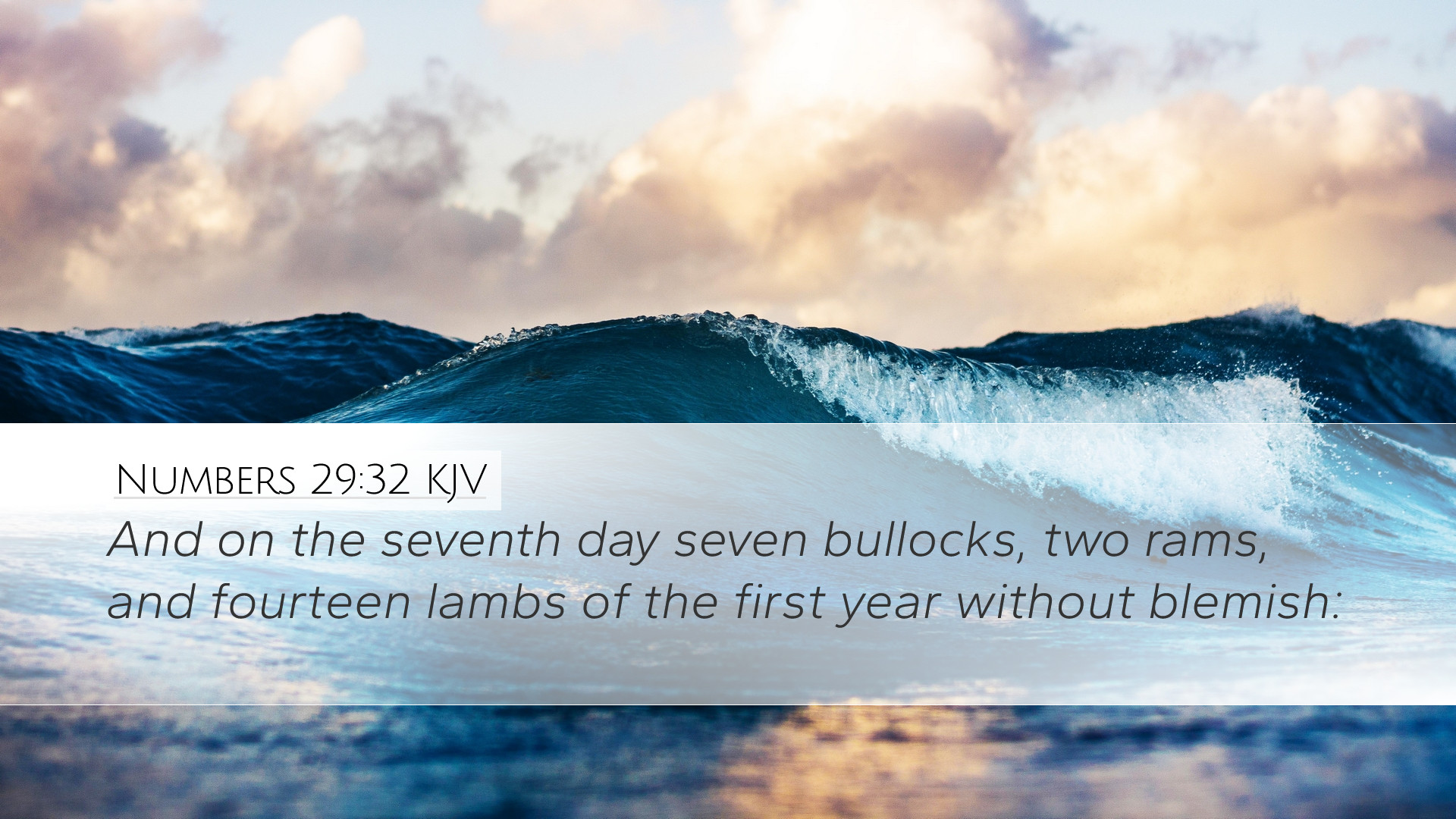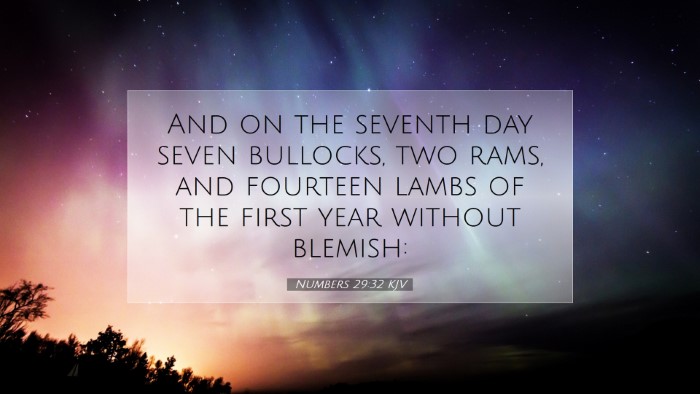Commentary on Numbers 29:32
Verse: Numbers 29:32: "And on the fifth day, nine bullocks, two rams, and fourteen lambs of the first year without blemish."
Introduction
The verse from Numbers 29:32 plays a significant role in understanding the sacrificial system of the Israelites as they journeyed through the wilderness. It comes in the context of the offerings that were mandated during the feast of Tabernacles, a time of celebration and thanksgiving to God for His provisions. In this commentary, we will explore the significance of the offerings, the typological implications of the sacrifices, and the theological underpinnings that can be derived from this passage.
The Context of the Offerings
The book of Numbers details the Israelites' journey from Sinai to the Promised Land, filled with laws, census data, and events that shaped their identity as God's chosen people. The offerings described in this chapter highlight their need for atonement and thanksgiving. Matthew Henry elucidates that the offerings were meant to symbolize the people's acknowledgment of God’s mercy and provision.
- Festivals and Offerings: The mention of the feast of Tabernacles is crucial as it represents a time of reflection on God's provision during their wilderness wanderings.
- Purpose of the Offerings: The offerings are not merely ritualistic; they serve as a means to express devotion and a communal identity focused on God's liberating act during the Exodus.
Significance of Numbers in Sacrifice
Albert Barnes' commentary highlights the symbolic nature of the offerings' numerology. The number five is associated with God's grace and favor. In this instance, the specified five days of the feast leading to the specified offerings can be seen as a representation of divine grace being poured out over God's people.
- Symbolism of Bullocks, Rams, and Lambs: Each type of sacrifice carries its symbolism. Bullocks often represent strength and leadership, while rams denote service and submission, and lambs symbolize innocence and purity.
- Quantity and Quality: The requirement for the sacrifices to be "without blemish" speaks to the high standards God sets for offerings, emphasizing purity and preeminence in worship.
The Theological Implications
Adam Clarke emphasizes the theological implications of this passage, linking it to the moral and spiritual state of the Israelites. The detailed nature of the sacrifices reflects the seriousness of sin and the need for holiness in approaching God. Each offering serves as a reminder that true worship requires more than outward observance; it demands genuine contrition and dedication.
- Atonement and Intercession: The sacrificial system represented God's provision for atonement, foreshadowing the ultimate sacrifice of Christ as the Lamb of God who takes away the sin of the world.
- Covenant Relationship: The offerings also represent the continual covenant relationship between God and His people, showcasing their reliance on divine mercy.
Application for Pastors and Theologians
For pastors and theologians, Numbers 29:32 serves as a crucial reminder of the importance of worship that is rooted in the acknowledgment of God's holiness and grace. This verse provides an opportunity to explore themes of sacrifice, grace, and the call to live lives marked by spiritual integrity. Here are some applications to consider:
- Holiness in Worship: Encourage congregations to approach God with a heart of reverence, recognizing the cost of sin and the grace that enables worship.
- Understanding Sacrifice: Use the sacrificial system as a means to point to Christ's ultimate sacrifice, teaching about the continuity of God's redemptive plan throughout scripture.
- Reflective Practices: Implement times of reflection and thanksgiving in worship gatherings to acknowledge God's provision and mercy over time.
Conclusion
In summary, Numbers 29:32 serves as a profound reminder of the significance of sacrificial worship in the life of the Israelites and its implications for modern believers. As we address the character of God through these ancient rites, we are also reminded of the necessity of genuine worship that springs from a heart transformed by grace. It calls us to a deeper understanding of both the challenges of approaching a holy God and the joys of a covenant relationship rooted in thanksgiving and dedication.


